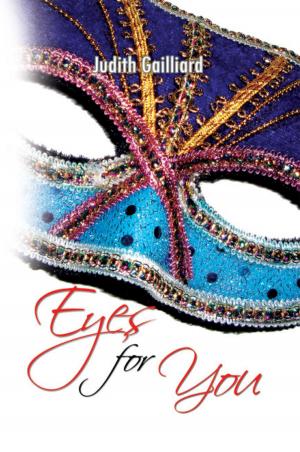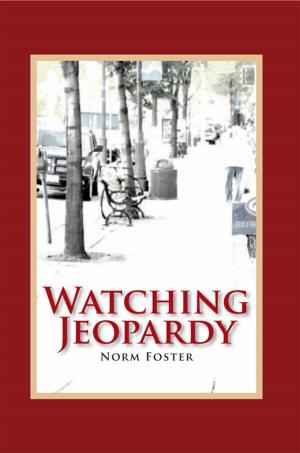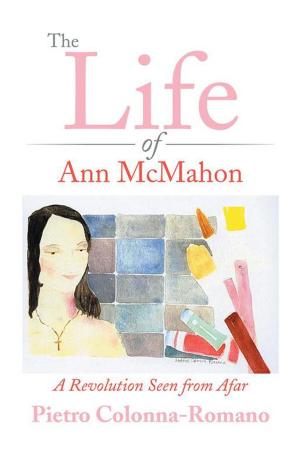| Author: | Clarence Joseph Socha | ISBN: | 9781462829026 |
| Publisher: | Xlibris US | Publication: | March 12, 2002 |
| Imprint: | Xlibris US | Language: | English |
| Author: | Clarence Joseph Socha |
| ISBN: | 9781462829026 |
| Publisher: | Xlibris US |
| Publication: | March 12, 2002 |
| Imprint: | Xlibris US |
| Language: | English |
It bothers you. Keeps coming back to mind like a dream. Wont go away. You read about the phenomenon, and you wonder if it is really possible that you have flashbacks to a life you had lived before. Nahhh! But you search for answers. You read about therapists who claim, when they use hypnosis to probe into patients subconscious for causes of emotional problems, that often they regress to previous life. Sometimes they speak in a different voice and tongue, and are instructed to speak English. Is this possible? Can you believe what these therapists claim?
More than forty years ago, Mr. Socha read a book, "The Search for Bridey Murphy" by Morey Bernstein, an amateur hypnotist. It was about a Colorado woman who was hypnotized who talked about a life she lived in the 1700s in Cork, Ireland. Her name was Bridey Murphy. The book created a sensation, but reincarnation in the 1950s in America was considered too far out and not to be taken seriously. The books popularity diminished, and it is out of print, although used bookstores grab all the copies they can get their hands on because people continue asking about it and copies do not stay on the shelves very long.
The author, C. Joseph Socha, could not forget about Bridey. The question, "What if?" persisted. Imagine what it would be like to listen in as a therapist, who hypnotizes a patient, is suddenly talking to an entity in another lifetime and is witnessing a famous historical scene: Ancient Rome, the Napoleonic Wars, moments of our Revolutionary War. An exciting idea! You have an observer there, now. You communicate with him. Tell me what you see? What is happening?
That is how "Promise" began. Socha picked a historical period to write about. He researched that period meticulously for details that matched accurately what we know of that period from our history books today. He leafed through hundreds of yellowed, aged pages of historical manuscripts. He examined illustrations. He had to feel that he was actually there to write realistically.
And what about the therapist? How did he become one? What did he experience the first time in a therapy session that he encountered an entity in a previous lifetime? Did he always believe in reincarnation? If not, did it shock him the first time he was exposed to an actual regression case? How did he hypnotize? How about a case history that he could share with the writer? These were questions that Socha, the writer, struggled with. He had to know. How else could he write about it realistically?
The reader of "Promise" will often wonder, "Hey. Is this stuff fact or fiction?" It is fiction, but the copy reads like an article, like reporting facts, accurate details about the period and the surroundings of that historical moment. Like providing mental snapshots of a moment. VISUAL writing. Something the author learned while working in the audio-visual production industry. The picture was all-important, but in a novel, no actual pictures are provided. So the writer produces descriptive movement. You see what he sees and feel what takes place. You can read the story aloud to someone and they will see in their own mind what is happening; like watching a movie or TV play.
The period in history that the story about is especially important to people who live in the Detroit area. They have often walked the location, sat beside the Detroit River, sensing its emotion calming effect. And standing before the Pontchartrain Hotel that sits on the site that once was Fort Detroit, if he has any imagination at all, cant he feel how it was long ago, when not this tall modern building stood before him, but in his imagination, the old Fort Detroit is there. And surrounding the Fort is the frontier. What was it like? What did it actually look like? Who lived in that Fort? You want to meet these people, desperately, because you feel the importance. These are people struggling to exist, and sometimes you might ev
It bothers you. Keeps coming back to mind like a dream. Wont go away. You read about the phenomenon, and you wonder if it is really possible that you have flashbacks to a life you had lived before. Nahhh! But you search for answers. You read about therapists who claim, when they use hypnosis to probe into patients subconscious for causes of emotional problems, that often they regress to previous life. Sometimes they speak in a different voice and tongue, and are instructed to speak English. Is this possible? Can you believe what these therapists claim?
More than forty years ago, Mr. Socha read a book, "The Search for Bridey Murphy" by Morey Bernstein, an amateur hypnotist. It was about a Colorado woman who was hypnotized who talked about a life she lived in the 1700s in Cork, Ireland. Her name was Bridey Murphy. The book created a sensation, but reincarnation in the 1950s in America was considered too far out and not to be taken seriously. The books popularity diminished, and it is out of print, although used bookstores grab all the copies they can get their hands on because people continue asking about it and copies do not stay on the shelves very long.
The author, C. Joseph Socha, could not forget about Bridey. The question, "What if?" persisted. Imagine what it would be like to listen in as a therapist, who hypnotizes a patient, is suddenly talking to an entity in another lifetime and is witnessing a famous historical scene: Ancient Rome, the Napoleonic Wars, moments of our Revolutionary War. An exciting idea! You have an observer there, now. You communicate with him. Tell me what you see? What is happening?
That is how "Promise" began. Socha picked a historical period to write about. He researched that period meticulously for details that matched accurately what we know of that period from our history books today. He leafed through hundreds of yellowed, aged pages of historical manuscripts. He examined illustrations. He had to feel that he was actually there to write realistically.
And what about the therapist? How did he become one? What did he experience the first time in a therapy session that he encountered an entity in a previous lifetime? Did he always believe in reincarnation? If not, did it shock him the first time he was exposed to an actual regression case? How did he hypnotize? How about a case history that he could share with the writer? These were questions that Socha, the writer, struggled with. He had to know. How else could he write about it realistically?
The reader of "Promise" will often wonder, "Hey. Is this stuff fact or fiction?" It is fiction, but the copy reads like an article, like reporting facts, accurate details about the period and the surroundings of that historical moment. Like providing mental snapshots of a moment. VISUAL writing. Something the author learned while working in the audio-visual production industry. The picture was all-important, but in a novel, no actual pictures are provided. So the writer produces descriptive movement. You see what he sees and feel what takes place. You can read the story aloud to someone and they will see in their own mind what is happening; like watching a movie or TV play.
The period in history that the story about is especially important to people who live in the Detroit area. They have often walked the location, sat beside the Detroit River, sensing its emotion calming effect. And standing before the Pontchartrain Hotel that sits on the site that once was Fort Detroit, if he has any imagination at all, cant he feel how it was long ago, when not this tall modern building stood before him, but in his imagination, the old Fort Detroit is there. And surrounding the Fort is the frontier. What was it like? What did it actually look like? Who lived in that Fort? You want to meet these people, desperately, because you feel the importance. These are people struggling to exist, and sometimes you might ev















